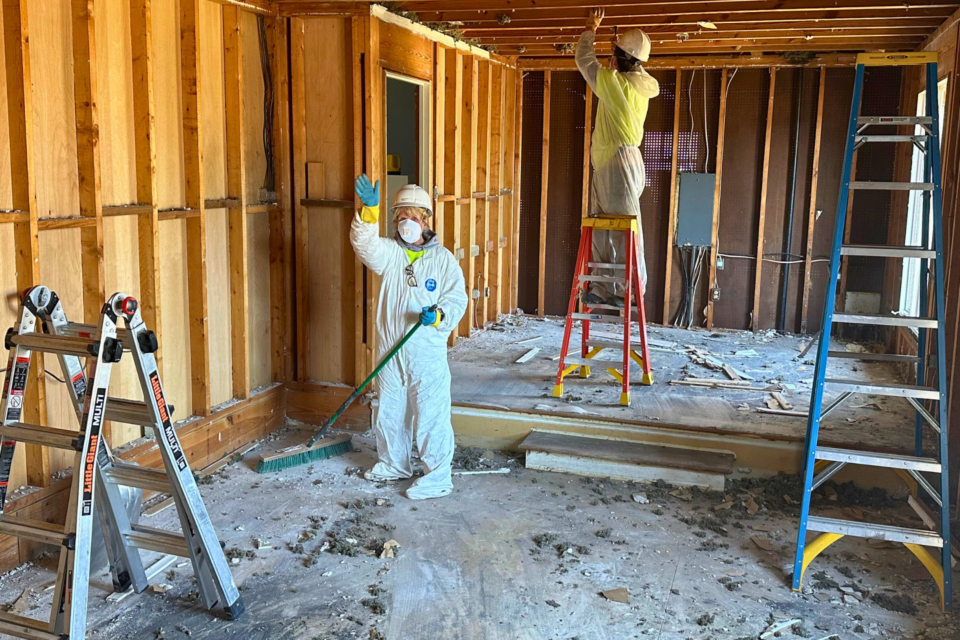In March, an Early Response Team of fifteen Michigan United Methodists journeyed to Georgia to aid rebuild efforts following Hurricane Helene. This is the first deployment from Michigan since 2012.
JAMES DEATON
Content Editor
Hurricane Helene, which hit the southeastern United States last September, was the deadliest hurricane since Hurricane Katrina, taking over 240 lives and causing widespread destruction. The catastrophic storm caused an estimated $78.7 billion in damage, according to a recent report from the National Oceanic and Atmospheric Administration (NOAA).
The United Methodist Church has been on the ground from the beginning, providing acts of Christian compassion to those in need. The United Methodist Committee on Relief (UMCOR), the disaster relief and recovery arm of The United Methodist Church, has been coordinating aid in cooperation with annual conferences and local congregations. Click to learn more.
Disaster kits packed by United Methodists arrived in hard-hit areas, solidarity grants from UMCOR assisted financially, and churches have become hubs for disaster relief by hosting UMCOR-trained Early Response Teams (ERTs) from annual conferences across the country.
On March 1-10, 2025, an ERT of fifteen Michigan United Methodists, including seven team leaders in training, assisted hurricane survivors with home cleanup and debris removal in Augusta, Georgia. Specifically, the team worked to remove tree stumps and other storm debris, damaged drywall and insulation from homes, and other property damaged.
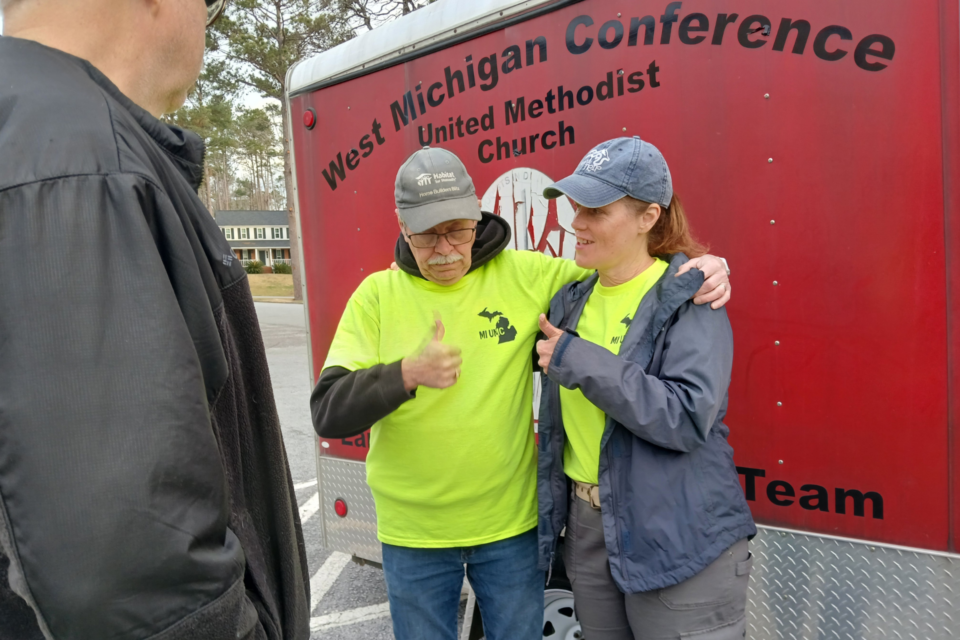
ERTs do not self-deploy. Our team was invited by the North Georgia Conference, thanks to our connectional partnership with UMCOR. Their Disaster Response Coordinator, Rev. Scott Parrish, contacted Rev. Kayla Roosa and Rev. Bob Miller, our Disaster Response Co-coordinators, and invited us to send a team of volunteers based on their needs and schedule. Word was then passed on to Rev. Bob Freysinger and Jody Pratt, ERT trainers and volunteer coordinators for the Michigan Conference.
This was the first ERT deployed from the Michigan Conference since Hurricane Sandy in 2012. The effects of the COVID-19 pandemic and a lack of trained team leaders created challenges with team development. In recent months, Bob and Jody have been holding occasional trainings here in the Michigan Conference to prepare individuals interested in joining an ERT or Volunteers in Mission (VIM) team if a call for aid is sent to us by another annual conference.
The Michigan Conference is organizing a journey to Kentucky, and two VIM teams, which will focus on long-term recovery, are returning to Georgia. Would you like to be trained to join one of these teams? Register for the May 10, 2025, ERT training at Cornerstone Church in Grand Rapids. This eight-hour training gives you the basics for entering a disaster zone as a volunteer, certifying you for three years. Register by May 1. Click to learn more.
Register for the May 10 ERT training in Grand Rapids.
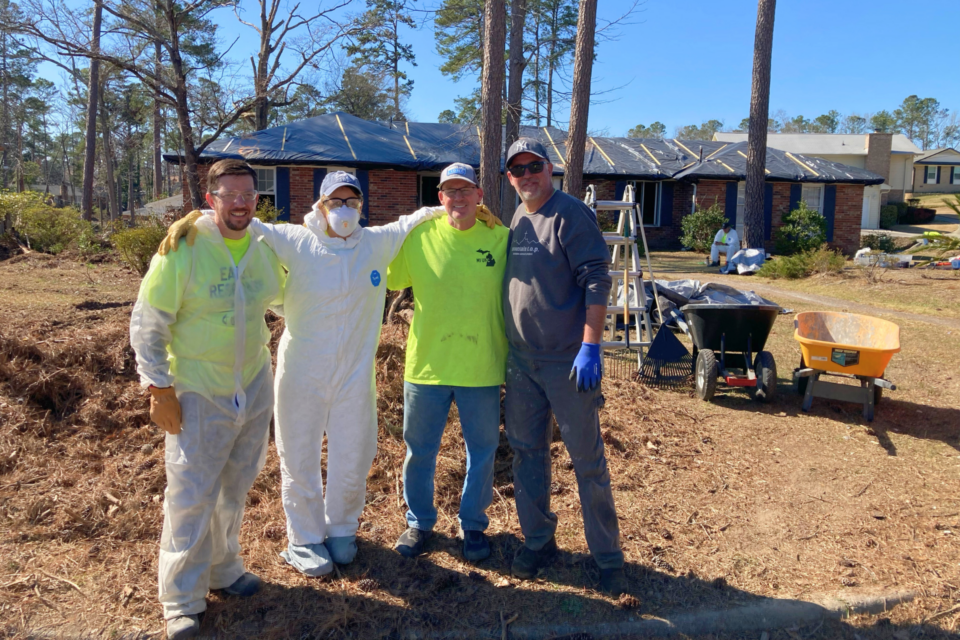
ERTs serve on a call basis and are usually a geographically diverse team. Because the work can be demanding, these teams typically stay a short time, about 3-5 days. Our ERT to Georgia had people from Ishpeming, Middleville, Suttons Bay, Rochester, and other areas of Michigan. A couple of Michiganders wintering in Florida stopped and joined the team on their way back north.
VIM teams usually come from one local church and are focused on long-term recovery, on the heels of the work ERTs began. They tend to stay longer (1-2 weeks). The work started by ERTs often transitions into long-term recovery. In fact, three members of our team from Michigan stayed for a second week as their skills set the stage for the next group.
In addition to the physical labor, volunteers also spent time building relationships with the community and those affected by the disaster. Local United Methodist churches extended hospitality through lodging, meals, and support during our team’s stay. Our ERT members were housed at Marvin UMC on the northwest side of Augusta.
ERT co-leader Jody Pratt recalls the care and welcome their team received from Marvin UMC. “They’re a small, diverse congregation,” noted Pratt, “with a choir of three who invited us to share in communion. We were warmly greeted with hugs, introductions, instructions on using the kitchen and where to find extra bedding and towels, and a deep appreciation for our help.”
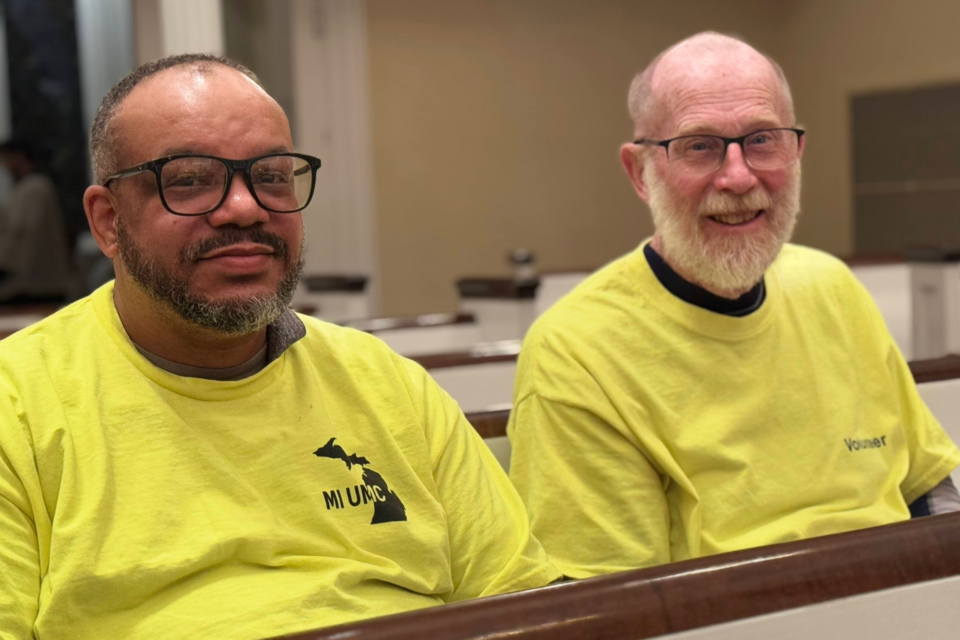
The United Methodist connectional body is one of the hallmarks of our faith. Rev. Fred Elmore, a retired elder who attends Keswick UMC in Suttons Bay, is a veteran UMCOR volunteer, and he witnessed the value of this network of support while serving in Georgia and other places.
“All would be much more difficult without the United Methodist connection, whether it’s finding houses in need of repair that are appropriate for our kind of help or locating housing for us to stay in.” On a similar trip to Kentucky a few years ago, Elmore remembers a conversation with a local independent church they were working with. “Their leader said to me, ‘It’s easy for you Methodists to find a place to stay and a place to work. You contact a sister congregation. We have to find someone and then promote ourselves.’”
Amy Heitman, a team member from St. Paul’s UMC in Rochester, where she serves as the Director of Children’s Ministry, gave an example of how their team built relationships with members of the community during their short but impactful stay.
“Attending church at Marvin UMC, who hosted our team, was the beginning of building relationships,” Heitman explained. “In fact, the person who sat in front of us in Sunday worship and invited us to join the choir was the same person whose fence we helped clear on Tuesday. We had the opportunity to talk to her about her family’s land and get to know her twin 4-year-old grandchildren, who remembered the tornado that tore through their town.”
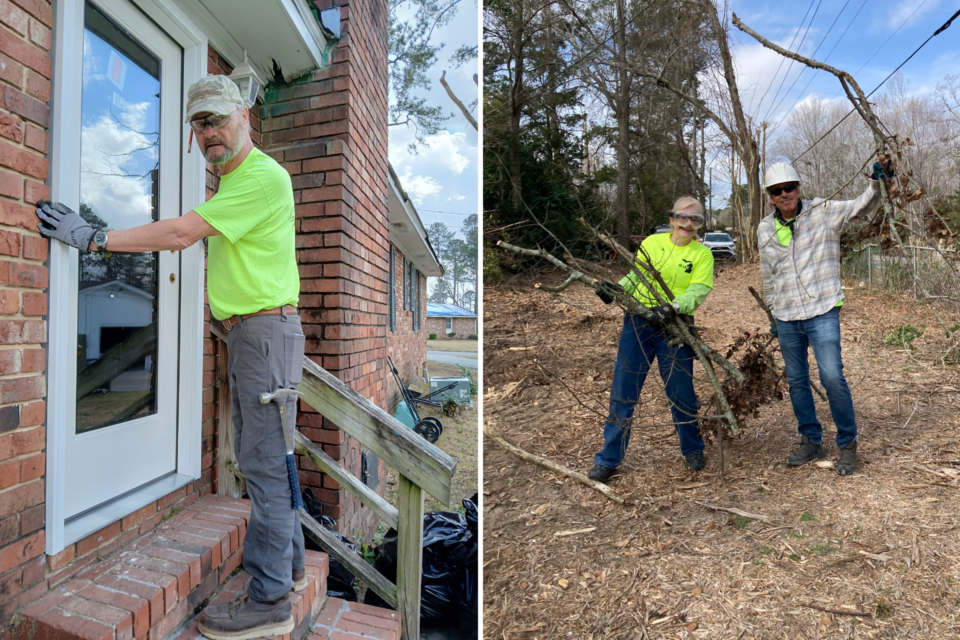
Fred Elmore felt appreciation from the owner of the house they worked on. “He thanked me, and I responded, ‘Glad to help out. I feel, if the roles were reversed, you would come to help me.’ He hesitated and said, ‘Yes, I think now I would.’ I felt he was saying that he might not have in the past, but now, after our example of doing Christ’s work, he would. Talk is cheap. When we put our faith into action, the message is so much louder and more believable.”
Being a member of an UMCOR ERT or VIM team takes some personal investment by receiving training. Also, depending on one’s employment, taking time off when a call comes for aid can be challenging. But these are volunteer roles with flexibility, and you would not be required to go if a team is requested. The work is quite rewarding, however, no matter the sacrifice.
Amy Heitman explained the impact of the experience: “I am fortunate to have two part-time jobs with tremendous flexibility, so taking time off is not difficult. Doing mission work is always worth the effort. I like working with people and found getting to know those who went to Augusta fascinating. This trip gave me a slew of new friends across the United Methodist connection with whom I hope to work again. I think it shows us that when we have similar hearts for helping, we can accomplish a lot together, no matter where we come from.”
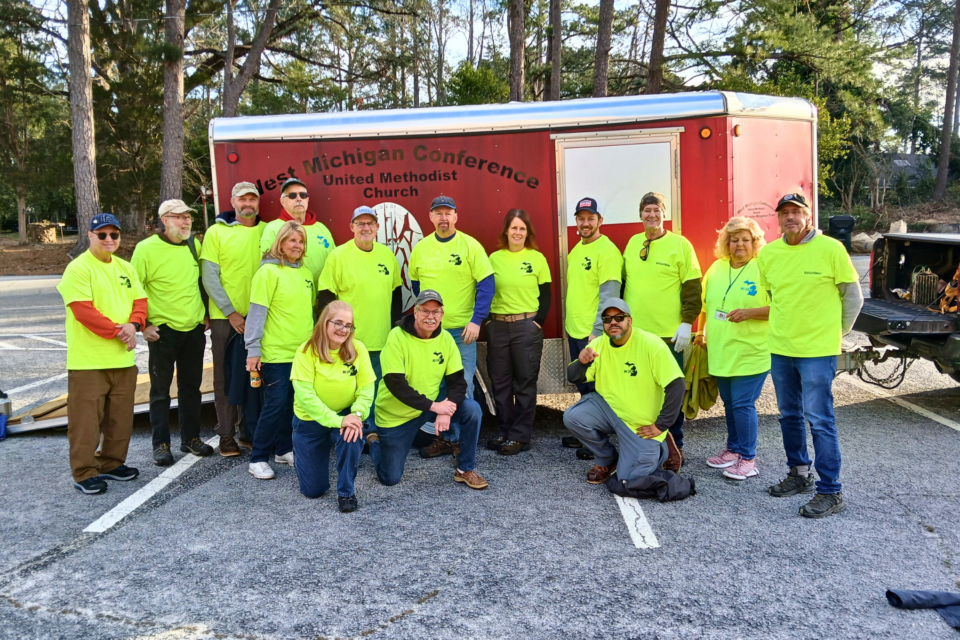
Want to get the necessary training to join a future disaster relief or long-term disaster recovery team from Michigan? Sign up for the May 10 training (click to register) or contact Jody Pratt at prattgji09@gmail.com or 616-292-4908 to schedule a future training at your local church.
Last Updated on April 15, 2025

